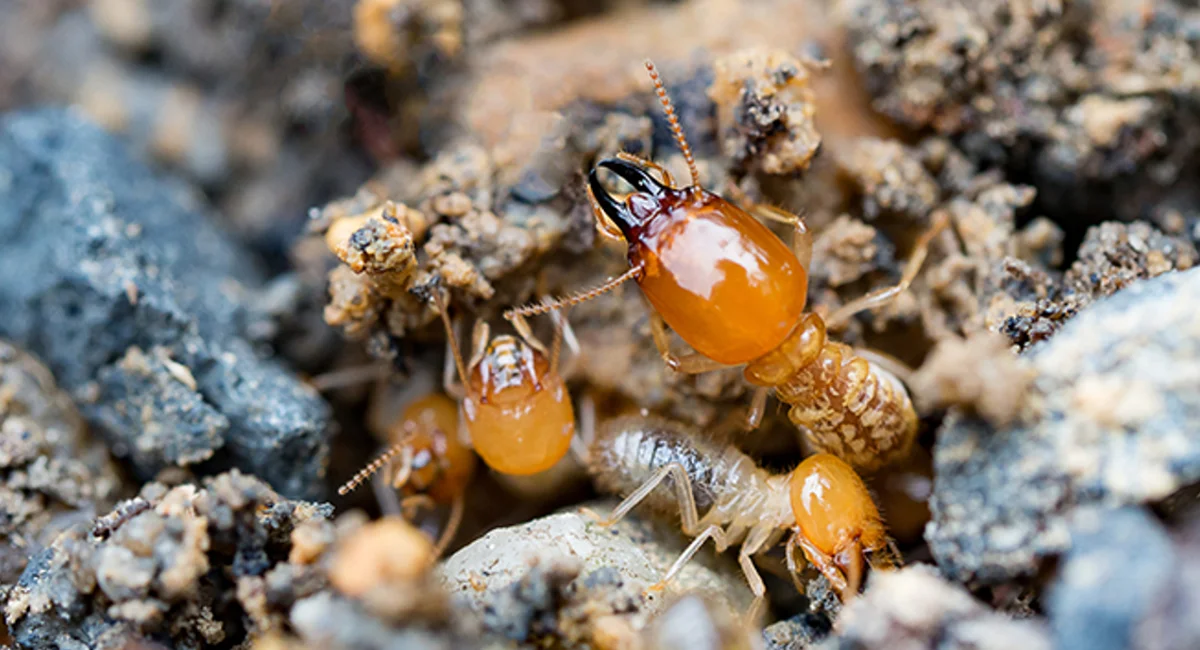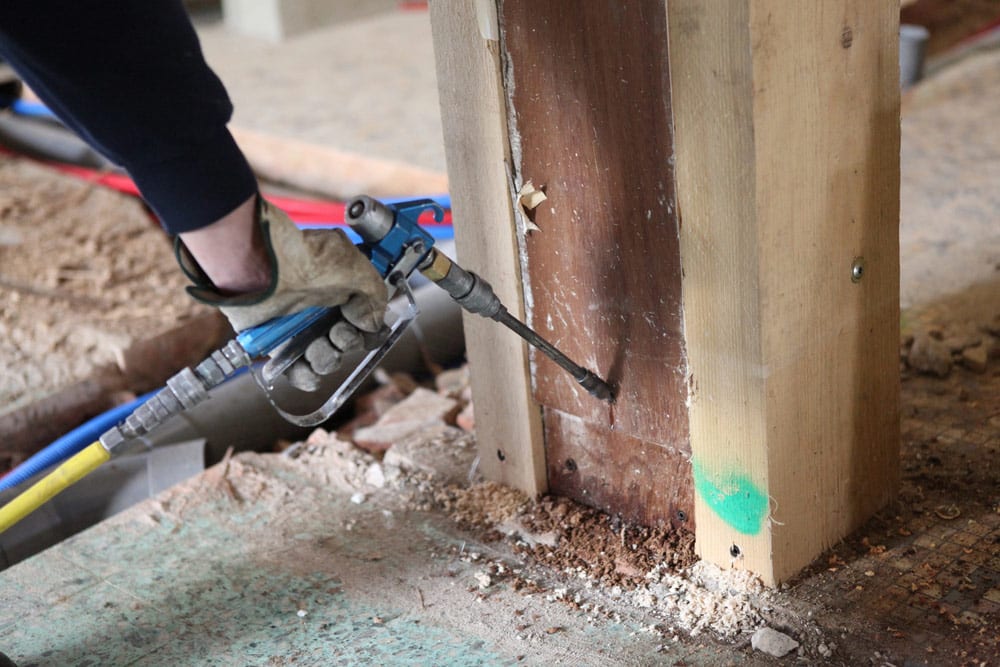Top-Rated Termite Control Services: Ensure Long-Term Defense for Your Residential property
Top-Rated Termite Control Services: Ensure Long-Term Defense for Your Residential property
Blog Article
Environmental Impact of Parasite Control: Balancing Efficiency With Sustainability
The environmental impact of insect control is an important concern that needs a fragile balance in between attaining effectiveness in handling parasites and guaranteeing sustainability of our ecosystems. As we make every effort to protect our crops, homes, and wellness from the threats presented by parasites, the methods we use can accidentally damage the setting. From using harmful chemicals that permeate into our dirt and water to the unintentional repercussions on non-target varieties, the consequences of traditional bug control techniques are significant. There are emerging approaches that supply hope for an extra sustainable technique to pest management. These remedies not only goal to attend to the instant parasite issues yet additionally think about the lasting wellness of our earth.
Damaging Chemicals in Pest Control
The usage of harmful chemicals in bug control poses considerable ecological and health dangers that warrant cautious factor to consider and mitigation strategies. Herbicides, pesticides, and chemicals are frequently made use of to get rid of bugs, however their widespread application can result in unplanned repercussions. These chemicals can pollute dirt, water sources, and the air, impacting not only the targeted parasites however also advantageous bugs, wildlife, and humans.

To address these dangers, integrated bug administration (IPM) strategies are being promoted as a more lasting choice. IPM entails a combination of methods such as organic control, environment adjustment, and the targeted usage of chemicals as a last option (ant control harrisburg nc). By embracing a holistic method to pest control, we can minimize the ecological and health influences connected with harmful chemicals while successfully handling pest populaces
Influence On Non-Target Species
Taking into consideration the unexpected consequences of parasite control methods, the impact on non-target types is a critical facet that needs complete analysis. While insect control actions aim to target details parasites, other microorganisms in the environment may be inadvertently impacted. Non-target species, including valuable pests, birds, creatures, and even plants, can suffer indirect or direct damage from pesticide applications or biological control techniques.
Pesticides can have deadly or sub-lethal impacts on non-target types. Pesticides made to deal with a particular bug pest may harm pollinators like bees or all-natural killers such as ladybugs. Additionally, chemical residues can build up in the atmosphere, impacting non-target microorganisms with time. Likewise, biological control agents, if not species-specific, can posture dangers to unexpected targets, interrupting the ecological balance.
To minimize the impact on non-target species, integrated pest management (IPM) strategies that highlight a holistic approach to pest control are advised. These methods focus on making use of eco-friendly methods, reducing damage to valuable microorganisms while successfully taking care of pest populations. Carrying out complete threat assessments and keeping an eye on the results of bug control efforts are necessary steps in safeguarding non-target species and advertising overall community wellness.
Soil and Water Contamination
Unexpected ecological effects of parasite control methods extend past impacting non-target varieties, with significant effects for dirt and water contamination - termite control. Chemicals, herbicides, and chemical plant foods utilized in parasite control can leach into the soil and infect groundwater, posing a threat to both earthbound and marine environments.
Water contamination is one more crucial concern related to insect control methods. Overflow from farming fields treated with pesticides can bring these chemicals into neighboring water bodies, affecting aquatic microorganisms and water high quality. Pollutants in water resources can have far-ranging consequences, affecting not just aquatic life however also human health with the consumption of polluted water or aquatic microorganisms. To mitigate dirt and water contamination from parasite control tasks, incorporated insect administration methods that focus on sustainability and reduce chemical inputs are important.
Air Pollution From Pesticide Usage
Direct exposure to airborne chemicals during farming applications postures a significant problem for air pollution control steps. Furthermore, pesticide drift, where pesticides are brought by the wind to unexpected locations, can lead to the contamination of close-by environments and water bodies.

Techniques for Lasting Parasite Control
In the realm of farming practices, applying lasting parasite control methods is critical for preserving ecological balance and guarding crop yields. Sustainable parasite control highlights using eco-friendly methods to take care of bug populations efficiently while decreasing harm to non-target microorganisms and ecosystems. Integrated Bug Management (IPM) is a commonly taken on strategy that integrates biological, cultural, physical, and chemical control techniques to achieve lasting parasite administration solutions.
One trick strategy in sustainable bug control is advertising biodiversity within agroecosystems. By improving natural adversaries of insects, such as killers and parasitoids, farmers can decrease the need for artificial pesticides. Crop turning and diversity are likewise reliable strategies to interrupt pest life process and create less favorable problems for pests to flourish. In addition, using pest-resistant plant ranges and employing strategies like catch chopping can help in reducing parasite pressure without depending heavily on chemical interventions. Ultimately, by incorporating these sustainable parasite control strategies, farmers can achieve a balance in between pest monitoring effectiveness and ecological stewardship.
Final Thought
In conclusion, the ecological influence of insect control techniques must be very carefully thought about to balance effectiveness with sustainability. Unsafe chemicals used in parasite control can lead to dirt and water contamination, air contamination, and injury non-target varieties - termite control. It is critical to execute lasting parasite control techniques to lessen these negative impacts on the atmosphere and promote a healthier environment for future generations
By embracing an alternative strategy to pest control, we can reduce the environmental and health impacts connected with harmful chemicals while successfully taking care of pest populaces.

To reduce the air pollution created by pesticide usage, it is crucial to take on integrated pest administration site web strategies that focus on the use of non-chemical parasite control approaches, such as crop turning, natural predators, and immune crop ranges. Sustainable parasite control emphasizes the use of eco pleasant methods to handle parasite populaces successfully while minimizing damage to non-target microorganisms and ecosystems. Integrated Insect Monitoring (IPM) is an extensively taken on method that incorporates biological, cultural, physical, and chemical control approaches to accomplish long-lasting pest monitoring solutions.
Report this page